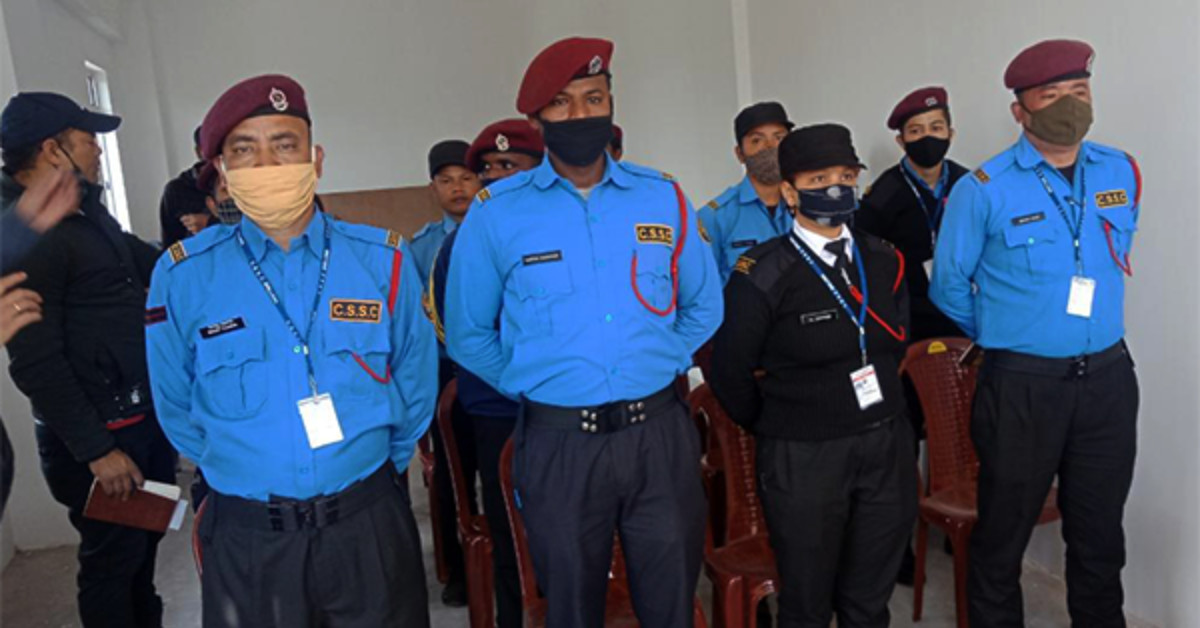Private Security: Ensuring Safety and Peace of Mind in an Uncertain World
In today’s world, safety has become a top priority for individuals, businesses, and communities. As threats to personal safety, property, and information continue to evolve, Private Security has emerged as an essential service that complements and supports public law enforcement. Whether it’s protecting homes, corporate assets, or critical infrastructure, private security professionals play a crucial role in maintaining peace, order, and stability.
What Is Private Security?
Private security refers to services provided by private companies or individuals to protect people, property, and information. Unlike public law enforcement officers, private security personnel are hired by private entities, businesses, or individuals to offer customized protection solutions. Their duties can include guarding properties, monitoring surveillance systems, managing crowd control, escorting individuals, or responding to emergencies.
Private security services are used across a wide range of sectors, including residential buildings, commercial offices, retail spaces, industrial sites, financial institutions, schools, hospitals, and government facilities. Their goal is to prevent incidents before they occur and provide quick, professional responses if they do.
The Growing Importance of Private Security
Over the past few decades, the demand for private security has grown rapidly. There are several reasons behind this trend:
-
Rising Crime Rates: As urban populations grow, crime and vandalism have become more common in many areas. Private security provides an extra layer of protection for homes and businesses.
-
Terrorism and Global Threats: In a world affected by terrorism and cybercrime, both public and private sectors rely on trained security professionals to detect and mitigate potential risks.
-
Insufficient Police Resources: Public law enforcement agencies often face staffing shortages and limited budgets. Private security helps fill this gap by offering immediate, tailored protection.
-
Technological Advancements: Modern security technologies such as CCTV, biometric access systems, and AI-based surveillance have made private security more efficient and proactive.
-
Corporate and Personal Needs: Corporations, celebrities, and high-net-worth individuals increasingly require personalized protection and risk management services.
In essence, private security has become a vital part of modern safety infrastructure—bridging the gap between public law enforcement and community-level security.
Types of Private Security Services
Private security encompasses a variety of specialized services, each designed to address different safety concerns. Here are some of the most common types:
1. Manned Guarding
This includes security guards stationed at entrances, exits, or sensitive locations to monitor access and deter intruders. Manned guards provide visible protection and act as the first line of defense.
2. Mobile Patrols
Security personnel conduct periodic patrols of premises or neighborhoods, ensuring no suspicious activity occurs. These patrols can be on foot or in vehicles.
3. Event Security
From concerts and festivals to corporate events and political gatherings, event security teams manage crowd control, check credentials, and ensure the safety of attendees and staff.
4. Executive Protection
Also known as close protection or bodyguard services, this type focuses on safeguarding VIPs, celebrities, politicians, or business executives from potential threats.
5. Residential Security
Private security firms offer protection for gated communities, apartment complexes, and private residences. This may include 24/7 surveillance, gate control, and emergency response.
6. Corporate Security
Businesses rely on private security to protect assets, monitor employee safety, prevent data breaches, and secure office premises.
7. Cybersecurity
In the digital era, private security also extends to protecting online assets. Cybersecurity professionals safeguard data, networks, and systems from hacking, phishing, and ransomware attacks.
8. Loss Prevention
Retailers and warehouses hire security professionals to reduce theft, fraud, and inventory loss.
The Role of Technology in Private Security
Technology has revolutionized the private security industry. Modern security companies use cutting-edge tools to enhance accuracy, efficiency, and real-time response. Key technologies include:
-
CCTV and AI Surveillance: Cameras equipped with facial recognition, motion detection, and AI analytics help identify suspicious behavior instantly.
-
Access Control Systems: Biometric systems, smart cards, and key fobs limit unauthorized access to restricted areas.
-
GPS Tracking: Enables live monitoring of security personnel and patrol vehicles.
-
Drones: Used for large-scale event monitoring, perimeter surveillance, and search operations.
-
Alarm and Intrusion Systems: Automatically detect and report unauthorized entry or fire hazards.
These technologies not only improve security but also reduce operational costs by allowing fewer guards to monitor larger areas efficiently.
Benefits of Hiring Private Security
Hiring a professional private security service offers numerous benefits:
-
Deterrence of Crime: The presence of uniformed guards deters potential criminals or vandals from targeting your property.
-
Quick Emergency Response: Private security teams are trained to act swiftly during emergencies—such as theft, fire, or medical incidents.
-
Peace of Mind: Knowing that professionals are safeguarding your property and loved ones reduces anxiety and enhances confidence.
-
Customized Protection: Private firms tailor their services according to client requirements, whether it’s a small office or a large industrial facility.
-
24/7 Monitoring: Many private security companies provide round-the-clock surveillance and on-site personnel for continuous safety.
-
Professional Expertise: Security guards are trained in conflict resolution, first aid, and crisis management.
Choosing the Right Private Security Company
Selecting a reliable private security provider is a crucial decision. Here are some factors to consider:
-
Experience and Reputation: Look for a company with proven expertise and positive client testimonials.
-
Licensing and Certifications: Ensure that the firm and its staff are properly licensed and compliant with local laws.
-
Training Programs: Well-trained guards with updated skills ensure effective protection.
-
Technology Integration: The best firms use modern tools like CCTV, alarms, and access control systems.
-
Transparency and Communication: Choose a company that provides regular updates and clear reports about incidents or patrols.
-
Cost and Contract Terms: Compare pricing, service scope, and contractual flexibility before finalizing.
Private Security vs. Public Policing
While both private security and public policing aim to ensure safety, there are key differences:
| Aspect | Private Security | Public Policing |
|---|---|---|
| Employer | Private individuals or businesses | Government agencies |
| Focus | Prevention and protection | Law enforcement and investigation |
| Coverage | Specific properties or clients | General public |
| Authority | Limited to private property | Full legal authority |
| Approach | Proactive and preventive | Reactive and investigative |
Both sectors often collaborate during large events or emergencies, combining resources for maximum safety.
The Future of Private Security
The future of private security looks promising as global demand continues to grow. Emerging trends include:
-
Integration of AI and automation for predictive security.
-
Growth in cybersecurity as digital threats increase.
-
Focus on sustainability and eco-friendly operations.
-
Data-driven decision-making using analytics.
-
Expansion of global private security networks for multinational corporations.
As technology and threats evolve, the private security industry will continue adapting—offering smarter, faster, and more reliable solutions for clients worldwide.
Conclusion
In an era where safety and security are paramount, private security stands as a vital pillar of protection. From physical guards to advanced surveillance systems, private security services provide the peace of mind that individuals and organizations need to function confidently. Whether for personal safety, asset protection, or digital defense, investing in private security is no longer a luxury—it’s a necessity.
By combining professionalism, technology, and vigilance, private security companies help build safer communities and ensure that every client, property, and business remains secure in an unpredictable world.







